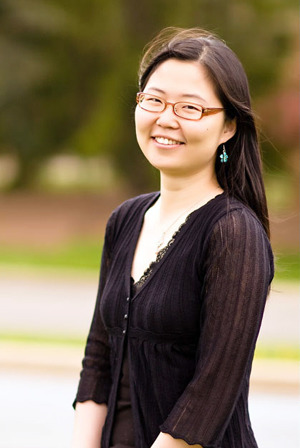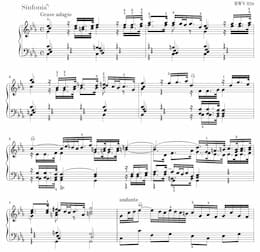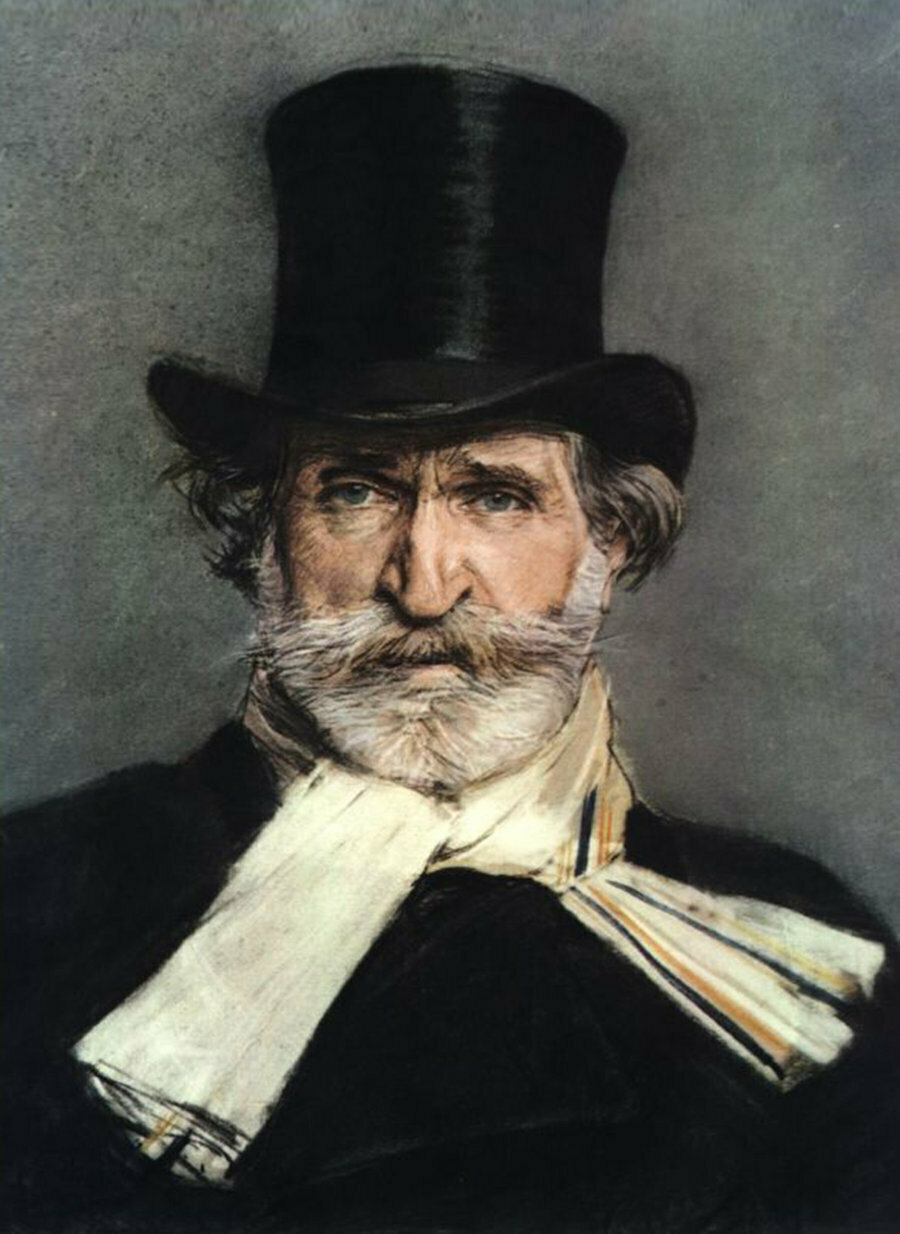 If you still have the impression that female composers write necessarily in a tender and soft style, you may want to hold back your stance for a while after listening to Ming-Hsiu’s piece- strands of interlocking rhythmic patterns piling up, imitating construction sounds in a restless pace. The velocity and energy in her Lego City resembles a manly strength leaves one’s heart pounding in excitement. If you get the chance to talk to the composer, you would have a sense that all these power originated from her cheerful personality and optimism.
If you still have the impression that female composers write necessarily in a tender and soft style, you may want to hold back your stance for a while after listening to Ming-Hsiu’s piece- strands of interlocking rhythmic patterns piling up, imitating construction sounds in a restless pace. The velocity and energy in her Lego City resembles a manly strength leaves one’s heart pounding in excitement. If you get the chance to talk to the composer, you would have a sense that all these power originated from her cheerful personality and optimism.
CH (Cathy Hung): It is interesting that you named your piece “Lego City” for the event. What were you trying to portray through this?
MH (Ming-Hsiu Yen): I came to Hong Kong in late August and this is my first time here. I was standing next to cultural centre, looking across the Victoria Harbour- and I thought this city was very surreal- very crowded with many skyscrapers and hills. The whole thing just doesn’t look real, just like a Lego city. The piece is based on how I perceive the sceneries, the urban hustle. There will be a lot of fast-moving passages in the clarinet part and the piano takes up the job of percussion. There will also be the violin and the cello.
I have been to other cosmopolitans like Tokyo and New York, but they are nothing like Hong Kong. In fact I am very amazed by the construction of residential estates here, where you have people living just above a shopping mall and MTR station. I think it’s just amazing.
CH: How has your cultural background contributed to the uniqueness of your piece?
MH: I received my education in Taiwan before college. Although I was in this music specialist school, I was mainly exposed to western musical influence. Generally I was not very much influenced by traditional Chinese music- well perhaps a bit of Taiwanese folk melody. In fact everything can inspire me, for example local Taiwanese tribal music, Chinese philosophy- anything related to my life experience. Sometimes I even get inspiration from cats, so there really is not much restriction.
CH: Could you please name one of your favourite musical pieces? And who are the most influential musicians to you?
MH: That’s very hard to answer. Let me put it this way: I am particularly drawn to drums and I like pieces that give emotional depth. I react better to deep harmonic language. For example I like Brahms’ Requiem. I remember once I worked on a composition of requiem for my dissertation called The Song of Life. The text is based on Buddhism, Christianity, and some Taiwanese poems written by Ping YANG 楊平. And I used a chamber orchestra of 25 players, SATB choir of 4 singers in each section, together with 2 solos (baritone and soprano). I guess you just have to be open-minded and there is a lot of inspiration in daily life. I believe that if something connects to you, it can also connect to other people.
CH: Apart from composing music, what other hobbies do you have? And how do they inspire you?
MH: I like to walk around and see new things- I like travelling a lot, especially visiting the many different China Towns in the U.S. Besides, I also like to read novels- Haruki Murakami’s 1Q84 and Norwegian Forest for instance. I like to experience my life based on what I see.
CH: How would you describe your music in one sentence?
MH: My music has no cultural boundary because all my ideas originate from my life experience and I try to use different ways to express my thoughts. I try different things in different pieces because I get bored quite easily.
CH: When did you first realize that you wanted to be a composer?
MH: It was when I studied at the Yamaha Institute in Taiwan when I was very small. I wrote a song about birds, you know with all these grace notes. I showed it to my teacher and she started to improvise and harmonise my song within minutes and I thought,“Wow this sounds cool!” That inspired me to write more songs. My private piano teacher, also a composer, encouraged me to keep writing since elementary school. When I entered middle school, I had to select my major and minor subjects and that was what supported me in choosing composition as my major and piano my minor.
CH: How has your family influenced you musically?
MH: My family members don’t know much about classical music, but they’ve been very supportive. I remember once I played Barber’s Piano Concerto, videotaped it and sent it back to my family. I asked them how they thought about my performance and their answer was, “We only watched it for 5 minutes because you’re not playing all the time!” That was some funny moments indeed. I guess they’re happy as long as I am happy with what I’m doing.
CH: How do you explore and experiment with new sounds and possibilities in your music?
MH: I try to explore everything I want to express through my music. I know that some composers might keep a checklist of techniques they want to employ in a certain piece. But I think that techniques should be used to serve your musical ideas, not vice versa.
CH: Inspirations come and go in just a flash. How do you manage to catch it in time?
MH: I remember visual images and feelings more easily. Whenever I compose, I’d recall a certain image and think, “What musical ideas can be used to replace it?” I think pure music is too abstract for me to come first in my composing process.
CH: How would you suggest the audience to listen to contemporary music? How do they catch the hidden ideas within the pieces that might sound rather new to them?
MH: It’s the composer’s responsibility to try his best to make audience understand his music without compromising. The reason why I say so is because in general, audience might not have enough experience to fully understand contemporary music. Through mediums such as images, words or excerpts etc, audience should be given more information about the pieces before the concert. Perhaps the composers can also stay behind and talk with audience after concerts and see how they respond. The whole point is about building communication, which is exactly why The Intimacy of Creativity is established.
CH: As a composer, what are your expectations on the audience when they listen to your music?
MH: In fact I don’t expect audience to like or fully understand my music. But I do feel sorry if they have no feeling or response after listening to it. Well, I guess I can usually predict their reception. One thing I’d like to make sure is that I do not compose because I want audience to understand my music. Rather, I compose because I write my music the way I want before finding ways to make people understand. I hope my music can have some influence on them.
CH: What are your ambitions towards your career as a composer?
MH: I’d like my music to reach out to as many people as possible. However I don’t expect everyone to like my music. Without compromising, I hope my music can reach out to many people. I guess that’s why I want to teach. Yes, writing music, teaching and having my music performed.
Greeting every new acquaintance with the warmest grin, Ming-Hsiu explains her creative mind with a firm belief- that she would like to move hearts with her music, just like how she embraces life with her infectious smile.
Links:


